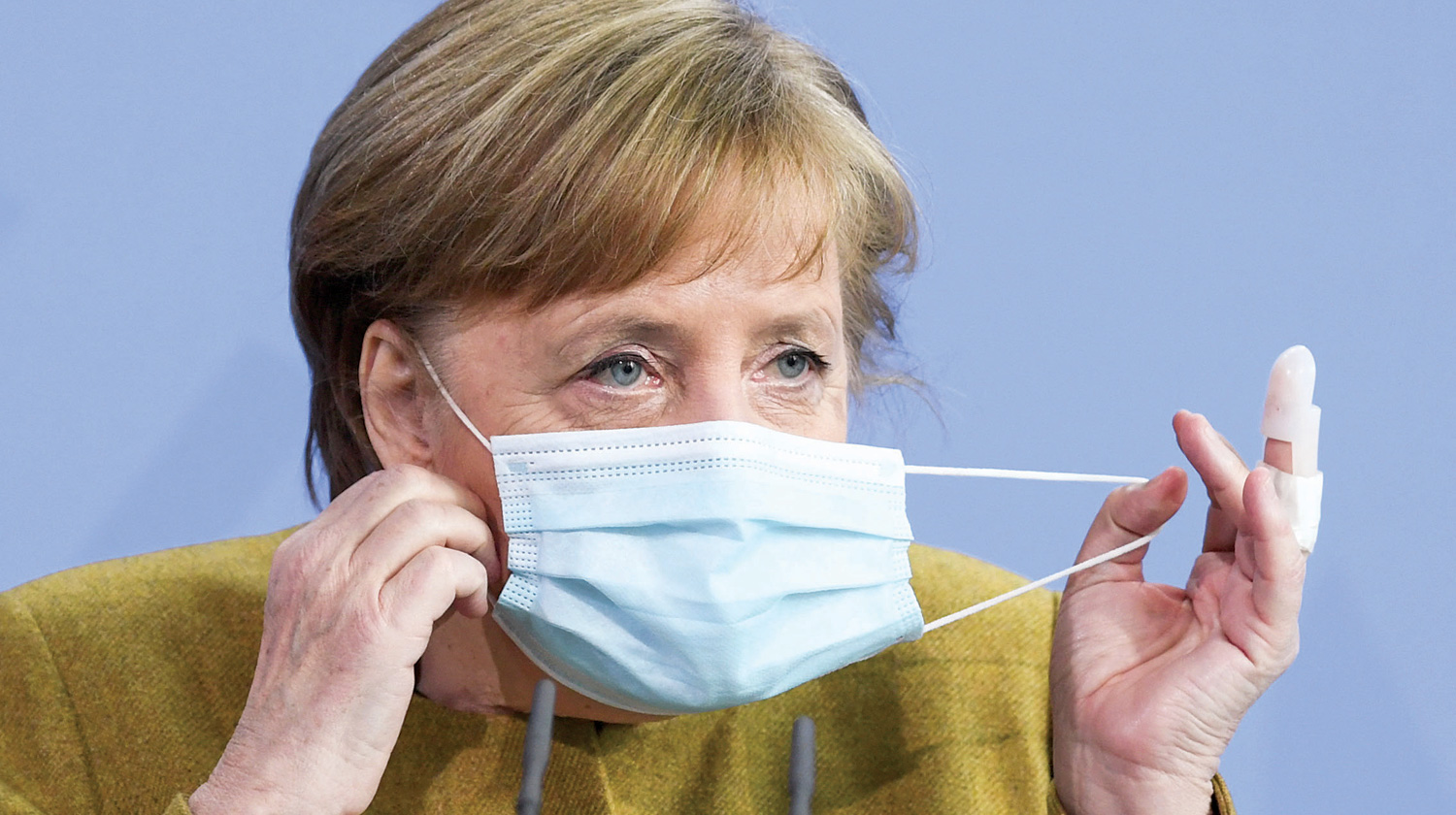

BERLIN: The German government agreed on Tuesday on controversial changes to a national infections control law, handing Berlin more power to impose tougher measures such as night-time curfews to halt the raging coronavirus pandemic.
The adjusted law, which still needs to be approved by parliament, would allow Chancellor Angela Merkel’s government to impose curfews from 9 pm to 5 am and close schools and businesses in areas with high infection rates.
Private gatherings and sports will also be subject to tighter restrictions as Germany remains gripped by a dangerous third wave of the pandemic which is putting increased strain on the country’s health system.
“Our fight against the pandemic has to be more stringent and more decisive,” said Merkel on Tuesday.
The move aims to end a political tug-of-war between the federal government and powerful regions over coronavirus measures, with manoeuvring ahead of September elections adding to the tensions.
Currently, restrictions are decided on in consultation with Berlin and — in theory — implemented by the federal states.
Yet in many cases, regional leaders have failed to put in place shutdown measures which they agreed with Merkel, with some even allowing shops and cinemas to reopen.
BITTER DISPUTES
Regular meetings between Berlin and the regions to set Germany’s coronavirus policies have been marked by bitter disputes and spotty compliance in recent weeks.
Most notably, some states have not followed through on an agreement to row back on the easing of measures in areas where the seven-day incidence rate exceeds 100 new infections per 100,000 people.
Only one out of Germany’s 16 states was reporting an incidence rate below 100 on Tuesday.
The adjusted law agreed by the cabinet on Tuesday would grant Berlin the power to enforce this “emergency brake”, which Merkel said was “overdue” given the seriousness of the pandemic.
In hard-hit areas, curfews will be imposed between 9 pm and 5 am, with exceptions for medical emergencies and those leaving their home for professional reasons. Non-essential shops and cultural venues will have to remain closed, while private gatherings will be allowed only between a single household and one other person.
The law would also see Berlin force schools — usually strictly within the remit of the federal states — to revert to virtual teaching if the seven-day incidence rate exceeds 200 cases per 100,000 people.
Cabinet also approved a new rule obliging employers to provide a weekly test to people who were unable to work from home.
Yet the changes have been met with scepticism from regional leaders. Lower Saxony’s interior minister Boris Pistorius told Die Welt newspaper on Monday that it was a “big mistake to take power from the regions in the middle of a crisis”.
The adjusted law still has to win a two-thirds majority to be fast-tracked through parliament this week, but is expected to pass.
— AFP
Oman Observer is now on the WhatsApp channel. Click here



